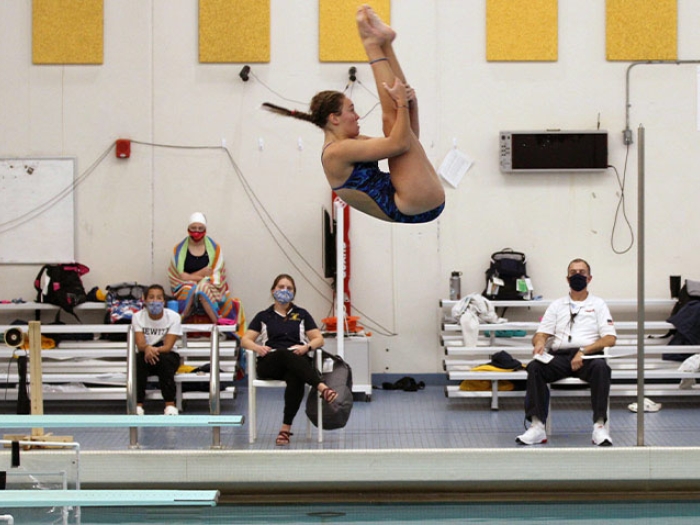A rare type of cancer required a team of vascular, orthopaedic and plastic surgeons to help one man get back to riding the open roads.
1:22 PM
Author |

Anyone who knows Mark Weimer will tell you he was born to ride. His motorcycle of choice: a BMW K1200GT. Over 40 years, he's racked up thousands of miles in 12 countries, including on Germany's Autobahn.
Riding, he says, is in his blood.
So when numbness and swelling in Weimer's left leg began to impact his rides two years ago, the then 60-year-old decided to get it checked out. At first, doctors suspected a blood clot in his leg, then an aneurysm in his femoral artery and, finally, a growth in the same location. But when surgeons at a local hospital began a procedure to remove the growth, they found a much larger tumor that was ultimately diagnosed as a rare grade 3 sarcoma. The surgical team, unprepared for next steps, ended surgery with a recommendation the Algonac, Michigan, resident never expected.
Weimer recalls the shocking words when he awoke from surgery: "It's bigger than what we thought. You need to have chemotherapy and radiation."
But he wasn't convinced. Accustomed to going with his gut instinct, Weimer sought a second opinion at the University of Michigan Rogel Cancer Center in December 2017. There, he met with orthopaedic surgeon Geoffrey Siegel, M.D., who took his report to the multidisciplinary tumor board. The consensus was unanimous: surgically remove the tumor, which had now been compromised by the previous failed surgery.
LISTEN UP: Add the Michigan Medicine News Break to your Alexa-enabled device, or subscribe to our daily updates on iTunes, Google Play and Stitcher.
Although doctors couldn't promise Weimer would ever ride again, he was hopeful the surgery would spare his left leg and, more importantly, save his life. Surgery was scheduled for January 17, 2018.
Removal of the tumor, which was entwined in a series of intricate blood vessels, would require an extensive and complicated procedure involving a Michigan Medicine team from vascular surgery, orthopaedics and plastic surgery working together for more than eight hours.
The first portion of the surgery required meticulous dissection of the tumor and surrounding blood vessels by Siegel and Frankel Cardiovascular Center vascular surgeons Andrea Obi, M.D., and Katherine Gallagher, M.D. After the intertwined tumor was removed, the team would begin moving blood vessels and rerouting blood flow in the left leg.
"We did both an arterial and relatively uncommon venous bypass procedure to restore blood flow," says Obi. A vein from the right leg was harvested to replace the affected artery and a non-essential vein in the left leg was used to re-route the venous blood flow returning to the heart.

"Following Siegel's successful tumor resection, we were able to reconstruct the arteries and veins using the patient's own tissue, reducing the possibility of developing a dangerous vascular graft or blood borne infection," Obi says.
Next, the Michigan Medicine plastic and reconstructive surgical team, led by Theodore Kung, M.D., spent several hours covering the vascular repair and repairing the soft tissue defect left behind by the tumor.
MORE FROM MICHIGAN: Sign up for our weekly newsletter
Weimer says his recovery was far from easy due to an immobilized leg and no shower for three months.
"It was a very humbling experience," says the man who had never needed much assistance from anyone. "I was the person always helping others. I wasn't used to depending on them to help me." But his friends, neighbors, wife and daughter got him through it, he says.
Weimer is currently on blood thinners, which he'll be taking for life. He also wears a compression bandage on his leg and is monitored on a regular basis.
The scars that run from below the knee to his groin — minimal due to the work of "excellent plastic surgeons" — are a reminder of his frightening experience.
There's still a risk of his cancer progressing, but for now Weimer is grateful to be alive with full use of his leg.
The coup de gras for Weimer? He was back on his bike in June for a long-standing traditional ride in upstate New York. "I've done this ride for 35 years," he says, proud to have taken on the challenge and happy to be back on the road with his fellow bikers.
At first Weimer says it was tough. "I didn't trust myself on the road." But eventually he was back in the saddle and leading the pack. "There was no stopping me," he says, adding, "No one could keep up. The trip did a lot for my inner psyche."

Explore a variety of health care news & stories by visiting the Health Lab home page for more articles.

Department of Communication at Michigan Medicine
Want top health & research news weekly? Sign up for Health Lab’s newsletters today!





